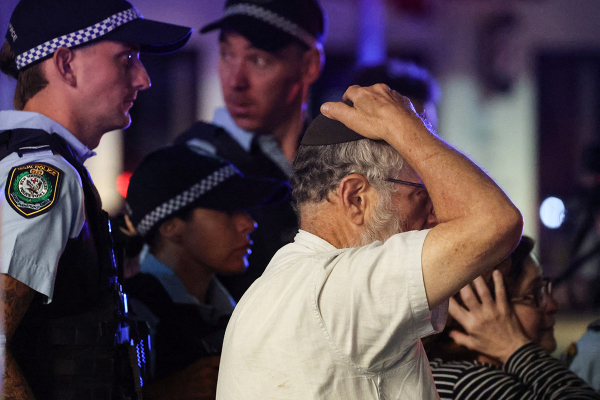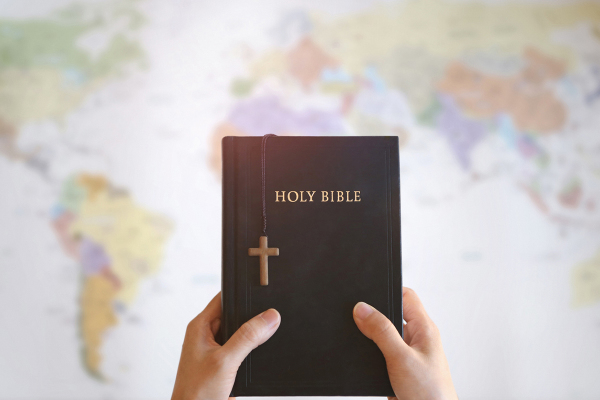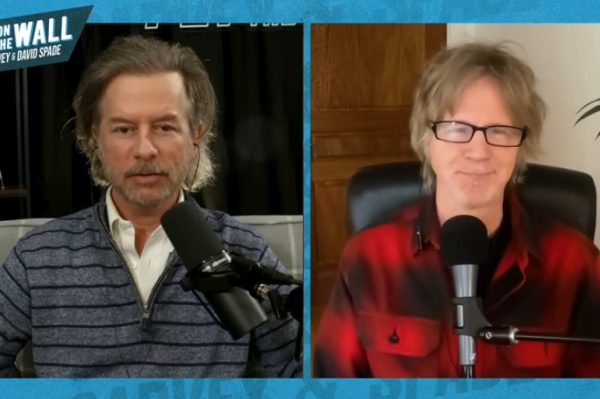BWA Head: Genuine Unity a Big Challenge for Baptists
The big challenge Baptists worldwide face is a greater manifestation of unity amid differences that sometimes challenges the oneness in Christ, says one top Baptist official.
And unity, among Baptists at least, is especially a struggle in the United States, noted the Rev. Neville Callam, the newly elected general secretary of the Baptist World Alliance.
"There's a crying need for all Christian communions to live out a life of unity, as a way of modeling to the world what it means to live in a united life despite your diversities," said Callam in an interview with The Christian Post.
Within the 38-million-member BWA, regional fellowships, member bodies and local churches are autonomous and establish their own positions on a range of issues, not including the "essentials of Baptist faith." And not all Baptists in the world claim membership to the BWA.
With over 69,000 BWA churches in the United States – where membership is most concentrated – alone running independently, diversity on theological emphases and social issues "sometimes challenges the unity that we want to express to the world," said Callam.
"It's a reality that we have to struggle with, especially here, it seems to me, in the U.S.," he pointed out. A Jamaican native and the first nonwhite head of the BWA, Callam recently moved to Falls Church, Va., to assume his new position.
More than 20,000 Baptists next January are expected to join for what has been billed the broadest Baptist meeting in America since Baptists divided over slavery before the Civil War. Former president Jimmy Carter is spearheading the Celebration of a New Baptist Covenant to counter the most common opinion about Baptists – that they cannot get along, according to Carter – and the negative Baptist image in North America by demonstrating Baptist unity around common social concerns such as poverty.
Organized under the umbrella of the North American Baptist Fellowship – a division of the BWA – participants include Baptists from predominantly black conventions, including the National Baptist Convention, USA, Inc., and the ethnically diverse American Baptist Churches USA – also a member of the BWA – among others.
Critics, mainly from the more conservative Southern Baptist Convention, which withdrew from the BWA following concerns over a "leftward drift," have raised speculation that the New Baptist Covenant has political overtones, considering the participation of former president Bill Clinton and the convocation date set for January 2008, the presidential election year. Callam, however, is pleased to see U.S. Baptists making the effort to reflect Baptist unity.
"I think it is highly commendable that the Baptists in North America ... have seen the need to come together to galvanize around some issues that they have no contention about," he said. "We are very pleased to see that Baptists in the U.S. are able to galvanize around a social agenda that is dictated by the demands of the Gospel, not motivated by political concerns.
"There are so many Baptist groups in the U.S. that it's difficult to have a coherent image that is credible and I think that this is part of the genius of the new movement that is being attempted under the new covenant that the Baptists may yet emerge with a fresh image that is true to the Baptist faith," Callam further commented.
Bill Underwood, one of the principal organizers of the New Covenant, has said North America "desperately needs a true Baptist witness."
Callam sees a desperate need for a credible witness worldwide.
"I believe that the big challenge that we're going to face over the next few years is to work towards greater progress in the manifestation of the unity of Baptists," he said. "I believe that the unity that we are talking about is going to be a unity that is grounded in truth. It is not a wishy-washy unity that you secure in order to look good but a genuine unity that flows from our understanding of our common baptism, our oneness in Christ Jesus and of the admissibility of diversity in some of the areas of our lives.
"That is to say we may not all believe that women should be ministers, we may not all believe this or that, but in the central tenets of faith, if we are one, we are going to be able to reflect a unity that the world needs to see, that the world may find the message of the Gospel credible," Callam added. "I think that is the challenge."
The church leader aims to do all he can to make a difference in the world by manifesting a unity not for the sake of unity but "because I believe this is what God requires."
"When we reflect on the question of the unity of the Church, I go right back to the Scriptures. And I believe that it is in the mind of Christ that Christians should be united. This is clearly taught in the sacred Scriptures," he stressed. "As one expression of the Christian faith, the Christian family, Baptists therefore by themselves ought also reflect the unity that should characterize the lives of all Christians."
After beginning in 1905 at the first Baptist World Congress, the Baptist World Alliance has grown to become a fellowship of more than 200 Baptist conventions and unions claiming to represent a community of over 110 million Baptists.
In the United States, BWA members include the American Baptist Churches in the USA, the Baptist General Convention of Texas, the National Baptist Convention of America, and the North American Baptist Conference.
The Rev. Neville Callam was elected this past July to succeed former BWA head Denton Lotz, who retires in December after holding the position since 1988.





















